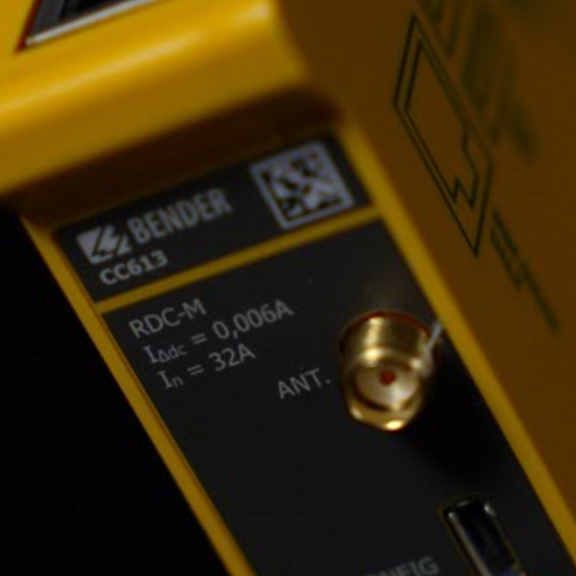

The increasing electrification of mobility and heating is placing new demands on the energy infrastructure. Standardised communication between devices and energy management systems is essential to ensure that charging facilities for electric vehicles can be operated efficiently, safely and in a manner that benefits the grid.
The EEBUS standard offers an interoperable solution for this – and Bender charge controllers are among the first devices to have successfully undergone EEBUS (pilot) qualification.
EEBUS is an open, manufacturer-independent communication standard that enables interoperability between energy-consuming and energy-generating devices. The aim is to intelligently control the flow of energy in buildings and the grid, taking into account availability, demand and the grid situation.
Typical EEBUS applications:
EEBUS has been published as the international standard IEC 63380 since 2025 and is recommended by the Federal Network Agency (BNetzA) and VDE FNN as the preferred interface for grid-friendly control.
Section 14a of the Energy Industry Act requires operators of new controllable consumption devices – such as private wallboxes – to ensure technical controllability by the grid operator. The aim is to avoid grid bottlenecks while promoting the integration of renewable energies.
Obligations for operators from 2024/2025:
The EEBUS applications LPC (Limitation of Power Consumption) and MPC (Monitoring of Power Consumption) fully meet these requirements and have been successfully tested as part of the Bender qualification process.
On 10 July 2025, the first EEBUS pilot qualification of an AC charge controller was carried out at the Living Lab Cologne of EEBUS e.V. – with a Bender CC612.
This means that all Bender charge controllers with firmware version ≥ 5.34.1 are technically EEBUS-compatible.
The qualification covers the use cases LPC (Limitation of Power Consumption) and MPC (Monitoring of Power Consumption) – both of which fully meet the requirements for grid-friendly control in accordance with Section 14a of the German Energy Industry Act (EnWG).
Advantages for operators and manufacturers:
The association is an initiative dedicated to standardising communication between energy-consuming and energy-generating devices. Its aim is to improve interoperability and efficiency in energy management. EEBUS enables various devices such as heat pumps, photovoltaic systems and charging stations to be seamlessly networked, thereby optimising energy flow.
Contact for registering charging stations with Bender charge controllers: EEBus e.V. & Living Lab Cologne
Our charge controllers are part of a modular, future-proof platform for AC charging infrastructure – and ready for tomorrow's requirements.
Thanks to regular software updates, new functions such as EEBUS support can also be activated on devices that are already installed. This means that your charging infrastructure remains technically and regulatorily up to date without the need for costly retrofitting.
Your advantages:
With functions such as dynamic load management (DLM), powerline communication (PLC) according to ISO 15118 and a wide range of interfaces, the platform offers maximum flexibility – and is EEBUS-ready at the same time.
Certified devices & requirements
The charge controller must meet the following requirements:
Generation | Model | Variant |
Charge Controller Generation 2 | CC612 with USB Ethernet adapter | CC612 -1M4PR CC612 -2M4PR CC612 -1M3PR CC612 -2M3PR CC612 -1S0PR CC612 -2S0PR |
Charge Controller Generation 2 | ICC1612 | ICC1612-1M4PR ICC1612-1S0PR ICC1612-1S0PR-E |
Charge Controller Generation 2 | ICC1622 | ICC1622-1M4PR-X2 ICC1622-2M4PR-X1 ICC1622-2M4PR ICC1622-1S0PR-X2 ICC1622-2S0PR |
Charge Controller Generation 3 | CC613 | CC613-ELM4PR-M CC613-ELPR-M CC613-ELM4PR CC613-ELPR CC613-HEM-X2 |
Charge Controller Generation 4 | ICC1314 | ICC1314-Connect Plus ICC1314-Connect SP |
Charge Controller Generation 4 | ICC1324 | ICC1324-Connect Plus ICC1324-Connect SP ICC1324-Home Plus (+HMI150 via WLAN) |
Charge Controller Generation 4 | ICC1624 | ICC1624-Connect Plus |